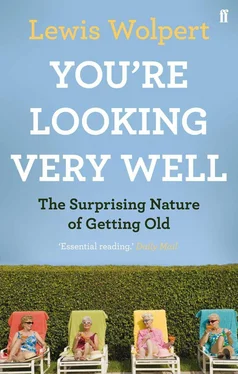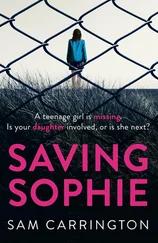At present the most important is care. Living in your home is an area the government have not fully got to grips with. We campaign on all these issues and it is based on sound research and we have several hundred forums with older people around the country where we continually get feedback on issues that are affecting older people, day in, day out. And then we employ some of the experts in the different disciplines which allows us to go to the government and business with the best knowledge about the issues and to work with them to develop solutions.
Many of the issues are interrelated but care and wellbeing is a very significant one. Wellbeing affects health and evidence from the research we do shows that activity helps in later life and prevents cognitive decline and depression, and can lead to less care having to be given. The new government has picked up on many of the manifestos and ambitions that we have sent to them. Before the election we laid out for all the parties what the key priorities are, and many of these have been retained by the new government. All the indications are that it includes getting rid of compulsory retirement at the age of 65. There will also be prevention of erosion of state pensions. They are putting forward a care commission to look at these issues.
We do not focus on the illnesses like dementia and cancer that affect later life, but on the quality of life. We do work on cognitive decline and how mental abilities change. There is a study by the University of Edinburgh on a cohort of 1,000 in Scotland starting in 1947 from the age of 11. We do a lot of work on incontinence, which is an area that others are less likely to focus on, particularly infections of the bladder which are key contributors to incontinence. The tests for incontinence are not sufficiently given, and incontinence is also linked to dementia. We are concentrating on improving later life rather than extending life. We do not take a strong position on euthanasia one way or another.
There is a sense that the old are put in a box labelled ‘old’ or ‘aged’ and there are many cases in medicine where the old do not get the necessary care because the condition is claimed to be age-related. A person going to a doctor, for example, and saying that he has a bad knee, the doctor would say that’s because you are old, and the person would say that his other knee is fine. With regard to care in the community, younger people get much higher budgets than older people. There is at times a lack of respect for the experience and knowledge of the old.
Another important issue is that there are over 2 million older people living in poverty. And many would be pulled out of poverty if they took the benefits they were entitled to. This is partly due to the complexity of the process and the forms that need filling in. Half of those over 75 live alone and do not have someone to help them with this. We would like auto-enrolment which means that the government would automatically give you your entitlement. It is a complex area.
‘Old men should have more care to end life well than to live long’
— Captain J. Brown
In 1965 The Who sang ‘I hope I die before I get old.’ When young, one thinks little about dying, but when old it is almost impossible to avoid it.
It is not necessarily frightening, but something for which one must be prepared. We elderly are constantly asking ourselves what makes life worth living. Are we scared of dying? A good death requires us to retain control, know when and where it will happen, have pain relief and access to good medical care. Centenarians are apparently allowed to die quickly, but the 85-year-olds are not. The bioethical critics of anti-ageing research and radical life extension lament the fact that ‘we’ are unable to accept death. Bioethicist Daniel Callahan argues that we must learn to accept the idea of a ‘natural lifespan’, one that might reach its conclusion sometime around the age of 80, for then surely we have more or less had adequate time to enjoy our creative capacities, raise children and experience what life has to offer.
How much is the chance of dying dependent on your age? Unsurprisingly, about 80 per cent of all deaths are of people aged 65 and over. Two thirds of deaths in England occur in people over 75. Taking all diseases together but not including accidents, in the developed world like the UK the death rate at 80 is 500 times greater than at 20. What causes this difference is not simply the ageing of our cells but many time-dependent processes. For example, with cancer there are many stages to be gone through, which take time. The same is true for many other illnesses, such as those affecting the blood system and the heart. It takes time for the vessels to become blocked. Fewer than one in 20 want to die in hospital, but nonetheless one in five do. In the UK, of those who were aged 65 and over when they died, about three quarters died in a hospital or in a care home. It is generally accepted that a supported death is preferable at home. Thinking about death may not be comfortable, but supporting people in the closing months and weeks of their lives should lie at the heart of the health service’s mission. The final year of life also accounts for a very high proportion of the costs of many people’s lifetime healthcare.
Several social factors can influence when one dies. Those who expect to die soon do in fact do so, compared to those who have longer expectations. Individuals who are between 50 and 59 years old and from the poorest fifth of the population are over 10 times more likely to die sooner than their peers from the richest fifth. This and other key findings emerge from the latest results of the English Longitudinal Study of Ageing (ELSA). And in the USA, elderly Americans with low education levels are more likely to die from serious illness, suffer disabilities and experience a lesser quality of life than their better-educated senior citizens. They also recover more slowly from hospitalisation. The reasons for poor health among these people may have to do with higher levels of hostility and hopelessness, and being ill equipped to maintain health.
How should one prepare for death? Should people, as Dylan Thomas asked, ‘Rage against the dying of the light’ or go gentle into that good night? Death anxiety is a common predictor of negative attitudes to ageing. For some it is the anxiety about the process of dying, and for others the uncertainty of what and where it leads to. There are many end-of-life decisions to be made: wills and, given the choice, where to die. It is very important that the old prepare their wills. A will is valid provided the testator understands it, and a delusionary state can invalidate a will. One can also make a living will and give medical decisions related to death to someone else, such as not being revived when very ill.
Open discussion may not be possible in the final stages. We need to avoid having to make last-minute decisions if possible—death requires a lot of preparation. Two thousand years ago Seneca wrote, ‘He will live badly who does not know how to die well.’ This is so much more relevant now that we are living so much longer, and death can come much more slowly. At the age of 80, Churchill said that he did not mind dying as he had seen everything there was to see. Virginia Ironside also has a positive view:
Death, like grandchildren, is one of the extraordinary new and exciting perks of old age. Over 60, it’s time to get acquainted with it. No use dreading it or being frightened by it. People are always wringing their hands when their friends die but frankly, what did they expect? That they’d live for ever? What you don’t want is to let death take you by surprise, or you’re going to be like people who find that when the car comes to take them to the airport for their holidays, they have forgotten even to start packing. Visit the dying. Look at dead bodies. Write your will. Face up to it. It’s an adventure.
Читать дальше












